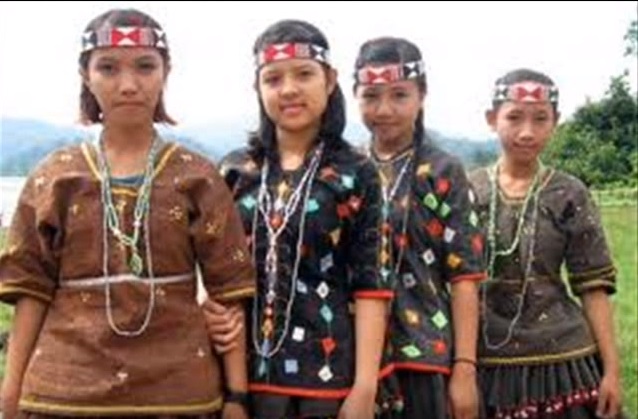Kaili Customary Law
Human and culture is an inseparable in the life of society, because culture is the implementation of all human activity in creating something. Be it in the form of culture and in the form of behavior, inherited from generation to generation as a socio-cultural order that must be adhered to as part of the ancestral heritage, so it needs to be preserved and preserved by the support community. Through Media Kaili hopefully the public in the city of Palu can take learning and can apply it back in our daily lives.
Inventory and Legal Study and Customary Sanction Kaili Tribe in Palu City has not been done and has not been well documented. This Inventory and Study reveals the law based on past history, most of the people are not familiar with writing but compliance with applicable law is highly respected in order to maintain the tranquility of life and common welfare. Customary Law and Sanction in Kaili land applied before the religion entered in the valley of Palu and also the existence of foreign colonization. This is part of the process of kebudaayaan that became the Kaili community, who hold firm to their customs.
Customs law and sanctions are oriented towards Givu's determination for the Kaili people who are domiciled in the Palu valley. When traced from the aspects of culture and local wisdom it turns out the customary law and sanctions have noble values and still upheld and obeyed. But in today's modern era most people have forgotten it and even considered a pamali (taboo) in everyday life. However, adat laws and sanctions are still guided to maintain the negative influence of modernization in destroying the order of life.
To maintain the harmonization of human relationships with His Creator, human relationships with man, human relationships with nature, and human relationships with his environment, everyone in the Kaili community always develops various values and ethics in terms of association, behavior, speech and action Always always in customary agreement.
The Purpose of Adat Sanction
Customary sanctions apply to anyone who violates the custom including from the nobility (madika) to ordinary people. For the purpose of upholding the law of customary values conceived, all citizens in 5 districts obtain the same law or sanction even though the tribe, rank and class are different. By using the philosophy: "where the earth is rested there the sky is descended", the strategic meaning of the word stands is to obey the customary law applicable to a region. The aim is to provide a cultivation of moral values, whose purpose is to protect all citizens from arbitrary and unlawful acts. Its benefits create peace and peace towards a life of cultural value. So if interpreted carefully customary law can humanize human.
Some suspect that the imposition of law and adat sanction seem heavy even inhuman, whereas its purpose is simply to reduce the number of crimes and offenses committed by people who feel strong. The meaning of the strategy of the Hukun and Kaili Customary Sanction in Palu City, to give peace and peace to avoid from various arbitrary, whether in the form of conflict issues or the actions of oppressing the private and community rights of the society itself.
Example
"RAPATESI SANJAMBOKO-RALABU RITASI" which means to be obliterated from the face of the earth by being killed or drowned in the sea together, in order to keep the Country safe and have the honor, because there is not one grave or graveyard of human being in the form of animal. This decision Received well and received full support from all the people including the families of the prisoners of both parties are also satisfied ".
Forms of Indigenous Violations and Sanctions
Basically a tribe, both remote tribes living in the hinterland, mountains, in valleys and coastal areas believe every mistake and violation there must be rewards / penalties / sanctions. Therefore, Kaili Topo Ledo / Rai / Tara / Doi / Unde stipulates that there is mpegivu (sanction / punishment) as follows: Sala Kana (attitude), Sala Baba / Sala Mpale (behavior), Sala Mbivi (talk).
1. Sala Kana (wrong attitude)
Vaya sala kana is one type of punishment given / imposed on a person who violates customary values relating to deeds, actions, speeches and behaviors in the category of tambak nakaputu tambolo and bangu mate (severe sanctions), in the form of:
1. Adultery (Nosimpogau) on the basis of mutual will and / or rape is the element of coercion on the part of men.
2. Conflict fights and murders.
3. Insulting.
Type of Actions:
A. Vaya Mbaso Nakaputu Tambolo (Serious Penalty):
1. Vaya Nosimpogau (Penalty for Adultery) between father and child or mother and child, niGivu (subject to sanctions): Nilabu or nipali for life (burned or alienated for life by the Society)
2. Vina adultery between brother and sibling brother, niGivu (subject to sanctions): Nilabu or nipali for life
3. Vina adultery between in-laws with son-in-law and grandmother with grandchild, niGivu (subject to sanctions): Nilabu or nipali for life
4. Adultery Vaya between aunt (aunt) or siblings' uncle of father or mother, niGivu (subject to sanctions): Nilabu or nipali for life
5. Vina adultery between siblings of siblings with husband or wife, niGivu (subject to sanctions): Nilabu or nipali for life
6. Vina adultery with the empress or princess of the King (Magau / Madika), niGivu (subject to sanctions): Nilabu or nipali for life
B. Vaya Mbaso Bangu Mate (Death penalty):
1. Nobualo is the adultery of a woman who has a legal husband with another man (on the wishes / temptations of women). Givuna (punishment) is imposed on women in the form of (bualo), consisting of Nebualosi Bualo Kana (perpetrator known) and Bualo Lombe (or nisiri that is still in the suspicion of who the perpetrators). Or adultery of a man who has a legal wife with a woman has a legal husband sanctioned vayana / Givuna:
A. Santina Bengga / sampomava bengga in Indonesian two buffalo,
B. Sanggayu gandisi (Raposompora Radua) version of ledo in Indonesian fabric from bark,
C. Samata Guma (rapo sambale tambolona / tambolora Radua) means in Indonesian a type of garang machete to slit the neck of a partner who commits adultery,
D. Santonga dula (rapotande balenggana / balengara randua) which means in Indonesian a pair of places to store head,
E. Santonga tubu mputi (posonggo raana / raara randua) a pair of white bowls for the blood offering of adulterers slaughtered,
F. Sudakana (in the form of the Riyal currency with an odd number between eleven (11) to Ninety Nine (99).
G. Pu'u with a count of 15 pieces up to 17 pieces in the form of suraya (plates) if more than 10 mpu'u equipped with Mposanga suraya such as Pinekaso, Tava Kelo in the implementation of thousand traditional council, if it does not exist, allow notovali (Nosambei) with Plates.
H. In the Rai version the perpetrators of abuses for women are called Nopangadi.
I. Unde version plus 140 suraya plus 15 tail Kebe (aqiqa: removing 1 goat) all divided by 2 men and women.
Givuna (Punishment) in wearing on Male (nebualosi):
A. Sampomava Bengga (one buffalo), in the Kaili Tara approach when the mention of only the word "Bengga" can then be replaced with 5 Kambi Tovaou Mporesi (wild goat), when the mention of Bengga Navuri Buluna (Buffalo black fur) is worn by actual buffalo.
B. Santonga dula (rapotande balenggana), Kaili Tara's version is worn by the usual Dena Lena.
C. Santonga tubu mputi (posonggo raana), the Kaili Tara version is subject to Tubu Posanga like Tubu Mata Bengga and may be tubu ordinary.
D. Sudakana (in the form of the currency of Riyal with an odd number of between eleven (11) to Ninety Nine (99) .At present time adjusted to the value of the Rupiah currency.
Note: Givu must be paid to the State treasury (Polisa Nuada: Rai, Sompo Nuada: Ledo) within the time stipulated by the customary court and if Givu is not paid in due time both will be sentenced to death (nilabu) or Nipanaa (reminiscent to the adat court With Nibeko sanctions being ostracized from the public).
(Source: Balitbangda of Central Sulawesi Province)




















